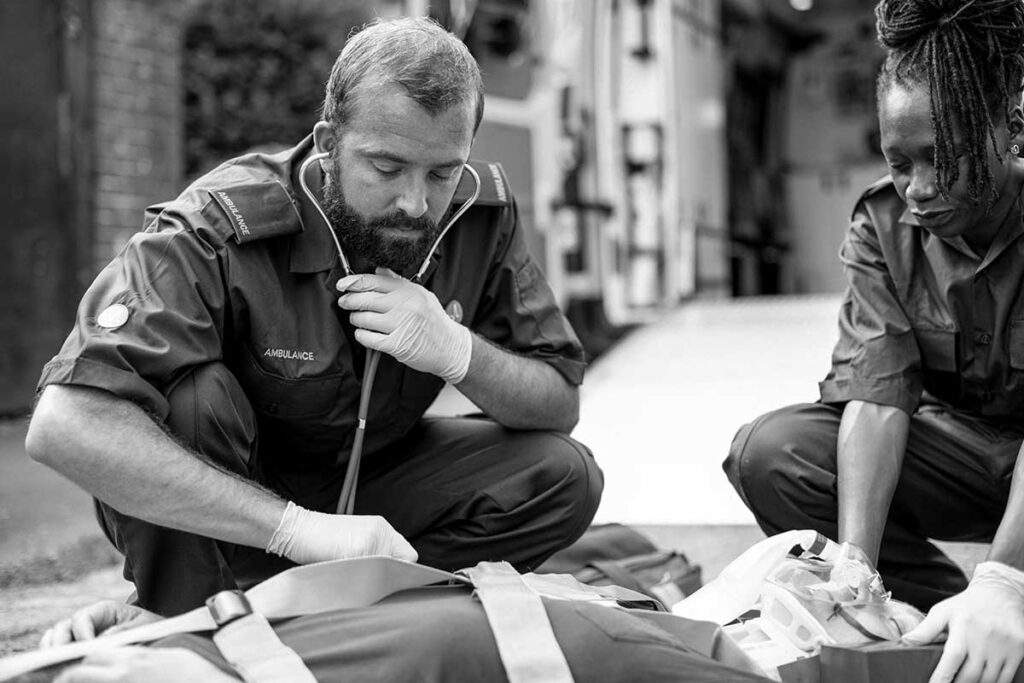Because of the nature of the job, first responders are often exposed to dangerous, demanding, and traumatic scenes. Not only do they provide victims with the medical attention they need, but they provide victims, witnesses, and family members with emotional support as well. As a result, many first responders experience mental health issues. The most commonly suffer from depression, PTSD, and anxiety. If these first responders don’t get the support they need to manage a mental health crisis, they may turn to drugs or alcohol. In fact, police officers have a higher risk of alcohol dependency with every year they remain on the force.
Are you tired of watching your loved one struggle with first responder addiction? While you can’t force someone with a substance use disorder to recover, there are steps you can take to increase your support for that person. At Vertava Health, we understand the challenges that face those who suffer from substance use disorder. To learn more about our first responder’s support program, contact our compassionate team members at 844.470.0410.
Find a Recovery Approach that Works
Every person with a substance use disorder has unique needs. So, it’s important that you find a recovery approach that works for your loved one. At Vertava Health, we know that not every program is a good fit for every patient. That’s why we offer a wide range of approaches. Your first responder might do well with a partial hospitalization program, or an outpatient program might be the better fit.
Talk to your first responder about their goals and the nature of their addiction. This will help you both get a better idea of the type of first responders support program that will work for them.
Know that the Process Will Be Difficult
Addiction recovery is never easy. It’s important for you to understand that fact upfront. Even if your first responder agrees that they have a problem, they may not be willing to seek help. Some of the common difficulties faced by people dealing with substance use disorders and their loved ones include:
- Unwillingness to change
- Fear of the potential consequences (losing their job/personal relationships)
- Feelings of embarrassment/unwillingness to discuss the problem
- Reluctance to discuss emotional issues with a doctor or therapist
- Relapses
All of the feelings and experiences on this list are normal. They can be difficult for a loved one to cope with on a day-to-day basis. If you are going to provide support to a recovering first responder, you must be aware of the potential problems and willing to stick it out through the highs and lows of the process.
Build a Trusting Relationship
As the support system of a recovering first responder, trust must be both given and received. This means that it’s essential for you to avoid nagging or criticizing your loved one. You will also need to avoid participating in triggering behaviors yourself.
Establish an Open Line of Communication to Support a First Responder
Trust is difficult to earn and easy to lose. The best thing you can do to facilitate trust between you and your first responder is to keep the line of communication wide open. Speak to your loved one about the way you are feeling and try to gain perspective on where they are coming from as well.
Yelling, name-calling, and accusing are harmful to your communicative relationship. Even when emotions are high, try to refrain from harsh words and tones as you support a first responder.
Call Vertava Health to Learn More About First Responder Addiction Programs
If you want us to help you support a first responder, please get in touch with the team at Vertava Health by calling 844.470.0410. We can discuss the situation and tell you more about our recovery programs. We know that the road ahead of you may seem long and difficult, but we will provide you both with the support you need to succeed.


